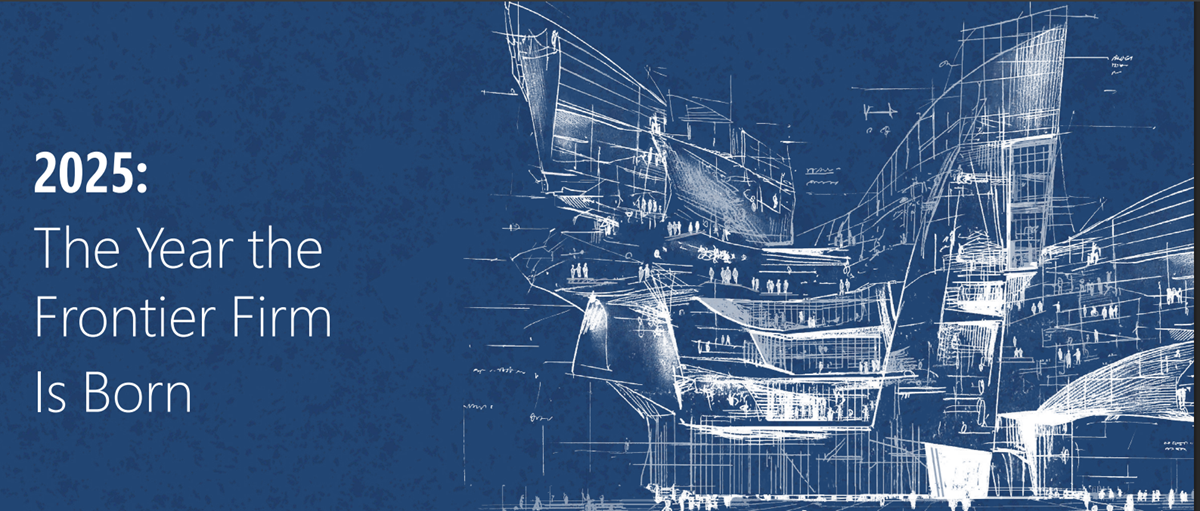April 29, 2025
Microsoft report highlights frontier firms of AI

Microsoft’s Work Trend annual index report highlights 2025 as the year of the frontier firm. As if company life wasn’t complex enough. Imagine firms that work in a totally on-demand manner, using AI, employees and services as and when it suits their needs.
These businesses represent the “emergence of an entirely new organisation. Structured around on-demand intelligence and powered by “hybrid” teams of humans and agents. These companies scale rapidly, operate with agility, and generate value faster.” according to the report.
“Frontier firms are already taking shape. Within the next 2–5 years we expect that every organisation will be on their journey to becoming one. 82% of leaders say this is a pivotal year to rethink key aspects of strategy and operations. 81% say they expect agents to be moderately or extensively integrated into their company’s AI strategy in the next 12–18 months.”
“Adoption is accelerating. 24% of leaders say their companies have already deployed AI organisation-wide, while just 12% remain in pilot mode. The time to act is now. The question for every leader and employee is: how will you adapt?” That question is asked more, even as CIOs warn their fellow board members about big bets on AI.
Adapting to AI at the frontier
The report highlights a three-phase approach to business evolution. Most companies are in phase one with AIs acting in a supporting role, providing assistance at the edges of worker performance.
By phase 2, agents will act as “digital colleagues, taking on specific tasks at human direction. For instance, a researcher agent creating a go-to-market plan.” We already see people generating reports that would take days or weeks of work to write manually. And it won’t take long for businesses to create and digest huge volumes of research or insights. Using AI to develop business plans, strategies and the most optimal operations.
Come phase 3, workers will be in charge of “agents that run entire business processes and workflows”. With people checking in as needed. Business teams will put the agents in charge of budget, scheduling and other key functions. From small pilots, once they are trusted, the agents could run large parts of a business. Worker knowledge and guidance will be vital at times, but within a few years, the AI could dominate operations.
None of this is theory. It is happening to varying degrees and at different paces globally. Soon, a company that doesn’t consider AI as a key business ally could be left behind.



